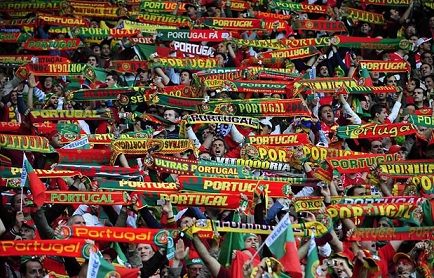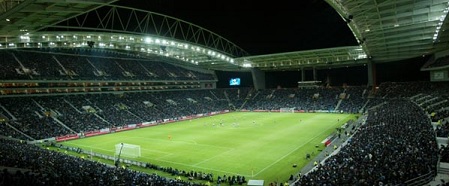 Football in Portugal is not just a sport; it's a vital component of the country's cultural identity and a significant contributor to its economy. From the historic stadiums that dot the landscape to the fervent fanbases that support their teams with unmatched passion, football is deeply ingrained in Portuguese life.
Football in Portugal is not just a sport; it's a vital component of the country's cultural identity and a significant contributor to its economy. From the historic stadiums that dot the landscape to the fervent fanbases that support their teams with unmatched passion, football is deeply ingrained in Portuguese life.
This transcends mere entertainment, akin to how the allure of exclusive casino rewards extends beyond the thrill of gambling, as the sport of football has a profound economic impact on the nation. Just as patrons are drawn to casinos for the promise of these rewards, fans flock to football, bolstering Portugal's economy through employment generation, tourism boosts, and an enhanced global image.
Boosting local economies through club activities
Portuguese football clubs, particularly the big three – FC Porto, SL Benfica, and Sporting CP – are more than just sports teams; they are large enterprises that contribute significantly to the local economy. These clubs are not only involved in football but also operate in various sectors, including media, retail, and real estate. The operation of these clubs generates thousands of jobs, from direct employment within the clubs to indirect employment in sectors like:
- merchandise manufacturing,
- sales,
- catering,
- security services during match days, etc.
Tourism and international exposure
Football is a powerful magnet for tourism in Portugal. International competitions, such as the UEFA Champions League matches hosted in Portugal, attract thousands of foreign fans, contributing significantly to hotel, restaurant, and transport services. Moreover, football-related tourism is not limited to match days; stadiums like Estádio do Dragão and Estádio da Luz are tourist attractions, offering tours that provide a significant revenue stream.
Development and export of talent
Portugal is renowned for its football academies, which have produced some of the world's finest players, such as Cristiano Ronaldo, Luís Figo, and Bernardo Silva. The development and subsequent transfer of these talents abroad bring considerable income to Portuguese clubs through transfer fees. This not only showcases the quality of Portuguese football training programs but also ensures a steady inflow of capital, reinforcing the clubs’ financial stability and their ability to invest in new talent.
Media rights and sponsorships
 The sale of broadcasting rights for football matches is a crucial revenue stream for Portuguese football. Domestic and international broadcasting deals bring in significant funds, distributed among the clubs, which they use to improve facilities, recruit talent, and enhance their competitiveness. Similarly, sponsorships from national and international companies provide a substantial financial boost, leveraging the clubs' brand visibility for marketing purposes.
The sale of broadcasting rights for football matches is a crucial revenue stream for Portuguese football. Domestic and international broadcasting deals bring in significant funds, distributed among the clubs, which they use to improve facilities, recruit talent, and enhance their competitiveness. Similarly, sponsorships from national and international companies provide a substantial financial boost, leveraging the clubs' brand visibility for marketing purposes.
Social and economic challenges
Despite these positive impacts, Portuguese football faces its share of economic challenges:
- financial disparities between clubs,
- reliance on the sale of players,
- the impact of economic downturns.
They all can threaten the stability and competitiveness of the sport. However, ongoing efforts to diversify revenue sources and improve financial management within clubs aim to address these challenges.
Wrap-up
The economic impact of football on Portugal is profound, influencing various sectors and contributing to the country’s global reputation. While challenges remain, the sport's ability to adapt and innovate continues to offer promising avenues for growth and development. As football evolves, so too will its economic significance, reinforcing its status as an essential pillar of Portuguese culture and economy.

